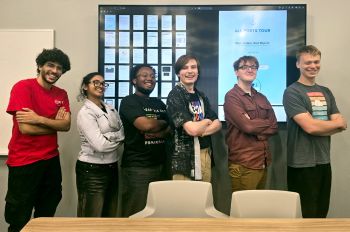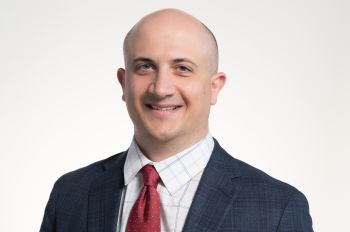Computer Science Faculty Awarded NSF Grant to Develop ChronoLog Data Storage System

The National Science Foundation has awarded Xian-He Sun, distinguished professor of computer science and Ron Hochsprung Endowed Chair at Illinois Institute of Technology, and Anthony Kougkas, research assistant professor of computer science at Illinois Tech, a multi-million grant to advance a new data storage system that will optimize the efficiency of high-performance computing.
High-performance computing is not only using larger data sets, but it is increasingly using activity data, or log data, which captures information as it occurs. Activity data are generated by computing systems, scientific instruments, and electronic devices. The rapid growth of activity data is stressing current data-management systems beyond their capability, creating performance bottlenecks of high-performance computing systems. In response, the researchers are developing ChronoLog to organize and store activity data effectively and efficiently.
“The ChronoLog solution will be so fundamental,” Sun says. “It will be the foundation for all data systems: traditional database systems, nontraditional data-management systems, decision making, information retrieval, data mining, and deep learning. The impact of its success will be profound, and we believe we have the ability to make it a huge success.”
Illinois Tech will lead this project with $2.7 million of the $4 million NSF grant. Sun and Kougkas will be collaborating with Kyle Chard, research assistant professor of computer science at the University of Chicago, who was awarded $1.3 million.
Activity data grows with time and is time sensitive. For example, a security camera that is constantly recording needs a place to store that data. ChronoLog can distribute this activity data across multiple storage devices to effectively scale storage capacity. Older log entries are maintained into a capacity storage tier while more recent data is stored into a capability storage tier, creating a feature called log data auto-tiering.
ChronoLog also will have the ability to sequence activity data by leveraging a physical time stamp, avoiding expensive techniques such as synchronization, data sorting, or centralized sequencers. By eliminating the need for these techniques, data bottlenecks will be reduced.
“Using the security camera example, how do you coordinate cameras in a city to trace one event?” Sun says. “The cameras’, or local computers’, timers and watches are not perfectly accurate, and the gap of their time difference may change during the event. The most difficult part is not that a watch becomes one second slower, but some events are recorded out of order due the local timers’ differences. If activity data were logged out of order, the whole system becomes unstable and cannot be trusted.”
Sun and Kougkas teamed up with Chard, who also conducts research at Argonne National Laboratory, as he brings his expertise in open-source software development. His connections to a community of developers, researchers, and industry leaders can help add features to ChronoLog, making it more useful to more people.
“Each collaborators’ application requirements are unique, and we would like to use them as a driver for the feature set of ChronoLog, or their expertise in a specific area makes them an ideal collaborator to enhance ChronoLog with state-of-the-art algorithms and methodologies,” Kougkas says. “The more diverse the use cases, the better and more robust our designs will be.”
ChronoLog also will integrate with existing data systems for general data solutions for different applications.
“At the end of this project, several new methodologies and algorithms will be published as research papers, and the code base that implements these new techniques will be widely available,” Kougkas says. “This project is one of the few academic projects that will bring Ph.D. students and software engineers together to create new tech that will serve applications of national importance.”
Disclaimer: The opinions, findings, and conclusions or recommendations expressed are those of the researcher(s) and do not necessarily reflect the views of the National Science Foundation.
Photo: Research Assistant Professor of Computer Science Anthony Kougkas [left] and Distinguished Professor of Computer Science and Ron Hochsprung Endowed Chair Xian-He Sun [right] are pictured in a classroom.




